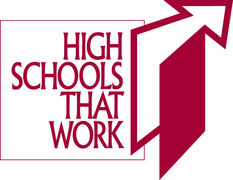This blog series provides readers with insight on the valuable content that is being shared at the Career Clusters ® Institute. Guest bloggers are among teachers, faculty, researchers and other experts that will present at the national gathering in Fort Worth, TX in June. Today’s guest blogger is Scott Warren, Director of State Initiatives, Southern Regional Education Board (SREB)-High Schools that Work. The SREB is located in Atlanta, GA.
Who says rigorous CTE is not key to improving student achievement? Consider these figures: 17 percent more students meeting college and career readiness goals in reading and science and 13 percent more meeting college and career readiness goals in mathematics. Where did these percentages come from, you ask?  When High Schools That Work analyzed data from its 2012 national assessment of seniors we found when students had classroom experiences in their CT classrooms they were much more likely to meet college and career readiness standards. This was true even when the students all took the same academic classes! 
High Schools That Work compared two groups of students from the 2012 assessment. The first group included students who experienced more than four of the eight indicators for a rigorous CT course. We then took a similar group in terms of ethnicity, socio-economic and gender who experienced less than four of these indicators. The results were staggering. Even when students took the “right†academic classes, rigorous CT resulted in a significant increase in achievement. For reading, 63 percent of the students who took a college preparatory academic core but did not experience rigorous CT met college and career readiness goals. However, 80 percent of the students who took that same academic core and had rigorous CT met college and career readiness goals – a 17 percent increase! Similar data holds true for science and mathematics.
In this breakout session on Monday afternoon, participants will learn more about these eight critical CT classroom experiences that make a difference. Participants will also learn a simple strategy to engage teachers in taking ownership of them by developing tools for leaders to use to look for them in classrooms.
Scott’s breakout is Monday, June 10, 2013 in session B: 3:45 p.m. – 5 p.m.Â
More information about the National Career Clusters® Institute
Ramona Schescke, Member Services Manager
Tags: Career Clusters®

